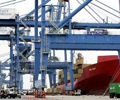Will the cost of living crisis ease next year? The global public thinks not

Financial worries are particularly acute as rising inflation, interest rates and tax burdens weigh heavy on people’s minds right now.
And with significant cost of living increases throughout 2022, many people don’t hold out much hope for an improvement in finances next year. Inflation, interest rates, unemployment and taxes will all rise in 2023, people predict, according to the monthly Ipsos Global Inflation Monitor report.
Researchers interviewed almost 25,000 adults in 36 countries on their thoughts about the global economy. Nearly seven in 10 of them thought inflation would continue to rise and more than six in 10 thought interest rates and unemployment would climb.
As a result, nearly a third predicted their own standard of living would fall, with 37% expecting their disposable income to take a hit next year.

But while the majority of people expect inflation to keep rising during 2023, fewer overall currently hold this expectation than earlier in the year. When asked in November 2022, globally, 69% expected prices to rise in the next 12 months, compared to around three-quarters who held this view back in June 2022.

By contrast, compared to the summer, more people expect the employment situation in their country to deteriorate over the next 12 months.
Personal finances
There is a little more optimism around the world when it comes to people’s own personal situations. More people expect their standards of living and disposable income to improve than did in April or June 2022. Although this masks some variation country to country – in richer nations there has been little change in view.
That said, the majority of people expect their household spending will continue to rise over the next six months. In particular, utilities – electricity, heating gas, etc – are expected to become more expensive.

What’s driving up the cost of living?
The blame for the rising cost of living is primarily placed on the global economy, but Russia’s invasion of Ukraine and individual countries’ financial governance and policies are also regularly cited.

The United Nations Development Programme (UNDP) warned over the summer that the global cost of living crisis catalysed by the war in Ukraine propelled 71 million people in the developing world into poverty. The consequence of surging food and energy prices tipped many more people into poverty much quicker than the shock of the pandemic, it said.
Although there are a billion fewer people living below the international poverty line than in 1990, it remains a vast problem. As of 2019 World Bank estimates, 650 million people live in extreme poverty globally with the pandemic, war and inflation having a significant impact on projections for improvement.
Source: World Economic Forum

 Hellenic Shipping News Worldwide Hellenic Shipping News Worldwide, Online Daily Newspaper on Hellenic and International Shipping
Hellenic Shipping News Worldwide Hellenic Shipping News Worldwide, Online Daily Newspaper on Hellenic and International Shipping





















 PG-Software
PG-Software